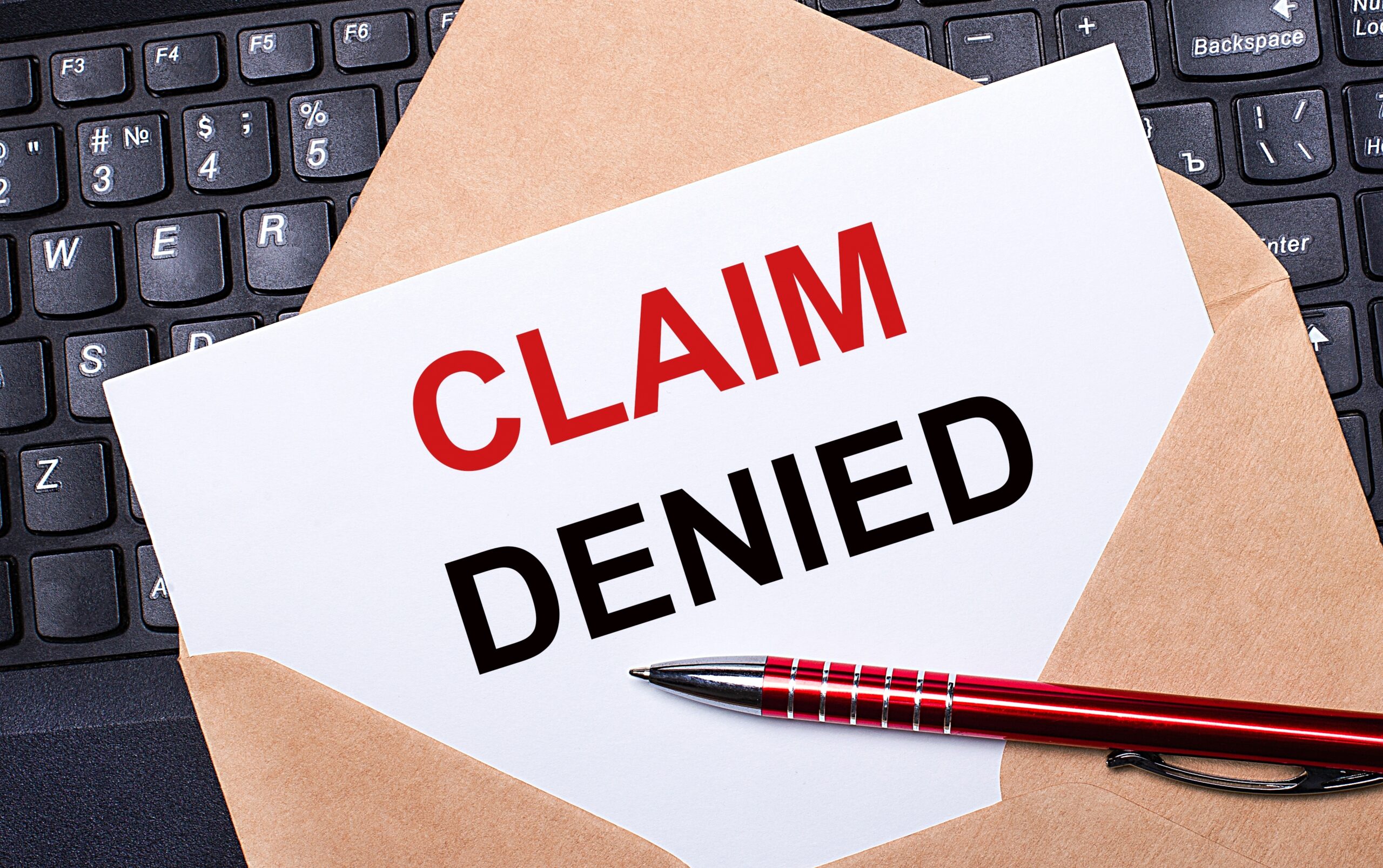
Facing a denial of your VA mental health claim can be incredibly frustrating. You’ve served your country, and now you are struggling with a mental health challenge like PTSD, depression, or anxiety that stems directly from your service. Getting your VA mental health claim denied is the last thing you need. It’s understandable to feel discouraged and angry, but you must not give up. A denial is not the end of the road; it’s a call to action.
At VMHA, we are here to help you fight for the benefits you deserve, especially if you have a denied mental health claim. We understand this process is a long and often difficult journey. We want to empower you with the knowledge and tools you need to build a stronger case and win your appeal.
The first and most crucial step is to understand exactly why your claim was denied. The VA will send you a detailed denial letter explaining their decision. Do not just throw this letter away in frustration. Read it carefully. This document is your roadmap for what you need to do next.
A denial letter will outline the specific reasons for your claim’s rejection. It might say:
Lack of a Diagnosis: The VA might state you do not have a formally diagnosed mental health condition. This is a common reason for denial, and it means you need to obtain a clear diagnosis from a licensed professional for your PTSD, depression, or anxiety.
Condition Not Linked to Service: The VA may acknowledge you have a condition but claim it was not caused or aggravated by your military service. This is the heart of the “nexus” issue. To win, you must prove a direct link between your service and your current condition.
Inadequate Medical Evidence: The VA may find that your examination or the evidence you provided was not sufficient to prove service connection or to justify the rating you are seeking. This often happens if a VA Compensation and Pension (C&P) exam does not fully capture your symptoms.
Understanding the specific reason for your denial allows you to focus your efforts on a targeted and effective appeal.
The VA’s denial letter is full of legal and bureaucratic language that can be hard to understand. The key is to look for the “Reason for Decision” section. This is where the VA will tell you what they believe is missing from your case.
If the letter says there is no current diagnosis, your first step is to get one from a licensed mental health professional. You can’t appeal a denial if you don’t have a diagnosed condition.
If the letter says there is no nexus (link to service), you need to find a professional who can provide a strong nexus opinion. This is often the most challenging part of a claim, especially for conditions like PTSD and depression that may not have appeared until after you left the service.
If the letter points to insufficient evidence from your C&P exam, you need to provide new and relevant medical evidence that counters the C&P examiner’s findings. This is where a comprehensive Independent Medical Opinion (IMO) can be a game-changer. An IMO from a private, independent expert can act as a powerful rebuttal to the VA’s examiner.
Once you know the reason for your denial, it is time to get ready to appeal. You must build a stronger, more complete case than you had before. Here are the steps you should take:
Obtaining Medical Records: Go back and obtain any additional medical records that support your diagnosis and service connection. This could include private therapist or psychiatrist notes and hospital records. If you have sought treatment for your PTSD, depression, or anxiety since you were denied, make sure you get those records too.
Collecting Buddy Statements: Gather “buddy statements” (VA Form 21-10210) from fellow service members who witnessed the events that contributed to your mental health condition. You can also ask family or friends to write statements describing how your condition has affected your daily life since you came home. These personal accounts add weight and credibility to your claim.
Writing Personal Statements: Write a detailed personal statement (VA Form 21-4138) describing your symptoms in your own words. Be specific about how your PTSD, depression, or anxiety affects your work, relationships, and ability to perform daily activities. Explain how your military service is the source of these problems.
Independent Medical Opinions (IMOs): Consider obtaining an Independent Medical Opinion (IMO) from a qualified mental health professional. An IMO can provide an expert opinion to support your appeal. A comprehensive IMO from VMHA can directly address the reasons for your denial and provide the clear, evidence-based link the VA is looking for. Click here to learn more about VMHA’s IMO.
The VA offers three appeal options under the Appeals Modernization Act. You must choose the right path for your specific situation.
Supplemental Claim: This is the most common and often best option for a denied claim. With a Supplemental Claim, you must submit “new and relevant evidence” to support your original claim. This evidence can be an Independent Medical Opinion, new medical records from a recent doctor’s visit, or a buddy statement. This is a good choice if you have new information that was not part of your first claim.
Higher-Level Review (HLR): An HLR is a good option if you believe the VA made a mistake in their initial review. With this option, a more senior VA reviewer will look at your case again, but they can only use the evidence that was already in your file. You cannot submit new evidence. This is a fast way to get a second opinion within the VA system.
Board of Veterans’ Appeals (BVA): An appeal to the Board is a more formal and time-consuming process. You are requesting a hearing with a Veterans Law Judge. You can choose to have a hearing with a judge, submit new evidence to the Board, or have the judge review your existing file. This is often the last step for complex cases that have already been denied multiple times.
Each option has its own advantages and disadvantages. It is important to evaluate each one carefully, or consult with a veterans’ advocate or attorney.
Navigating the VA appeals process can be a difficult journey to take on alone. The VA’s rules are complex, and a small mistake can lead to more delays and frustration. Consider seeking assistance from:
Veterans Service Officers (VSOs): VSOs can provide guidance and help you gather evidence. They are often affiliated with organizations like the VFW or the American Legion and can help you fill out the necessary forms and understand the process.
How VMHA Can Help: We specialize in providing Independent Medical Opinions (IMOs) with high-quality evidence to support your claim. Our team of expert psychologists knows the VA system and can create a comprehensive IMO that directly addresses the reasons for your denial. We provide the expert medical evidence that gives your appeal the best possible chance of success.
The VA appeals process can take time. Do not get discouraged by delays. You must stay organized and proactive.
Keep Meticulous Records: Keep copies of every form, every piece of evidence, and every letter you receive from the VA. This helps you stay organized and provides proof of all your actions.
Continue Your Treatment: Do not stop seeking treatment for your mental health. Continuing to see a doctor or therapist for your PTSD, depression, or anxiety not only helps you, but it also creates a consistent record of your symptoms and ongoing struggles. This record can serve as vital new evidence for your appeal.
Understand the Timeline: Be realistic about the timeline. A Supplemental Claim may take a few months, while a Board Appeal can take over a year. Stay patient and trust that your hard work and persistence will pay off.
If you submit a strong Independent Medical Opinion (IMO) with your appeal and your mental health claim is denied, it can be extremely frustrating. However, this is not the end of the road. An IMO is a powerful piece of evidence, but the VA can still choose to disagree with it.
If this happens, you should use the denial letter to understand the VA’s reasoning. Did they find a different medical opinion to be more persuasive? Did they find a flaw in your IMO? Once you understand their argument, you can take your case to the Board of Veterans’ Appeals. A Board appeal allows you to have a Veterans Law Judge review your case, and they will consider your IMO as a key piece of evidence. Your IMO now acts as a direct challenge to the VA’s opinion, setting up a legal argument that a judge can decide. Never give up on fighting for the benefits you deserve.
We understand the challenges veterans face when their mental health claim is denied. Our IMOs provide high-quality evidence to veterans that helps get their claims accepted by the VA. A denial is not a final decision. By understanding the reasons for the denial, gathering strong evidence, and seeking professional assistance, you can increase your chances of a successful appeal.
Remember, you’re not alone. We are here to support you.
If your VA mental health claim was denied, don’t hesitate to reach out to us. We can help you build the strongest possible case for your appeal.
Ready to book your IMO with VMHA? Click Here
Want more information? Email us at info@vmhaforvets.com or call us 214-307-2198.

